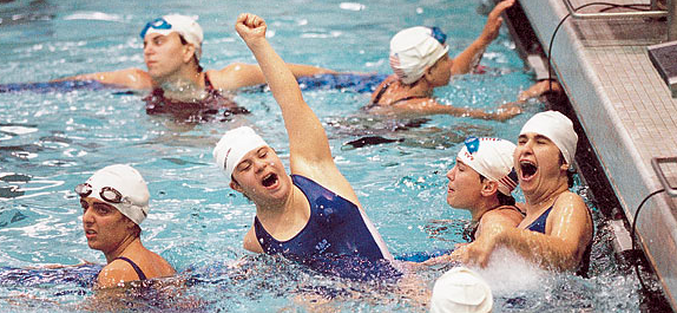Come So Far, Yet So Far to Go: the 2015 Special Olympics World Summer Games
These 15 words are recited every two years at the beginning of the Special Olympics World Games. As embedded in the oath, bravery has been a core value of Special Olympics since 1968 when founder Eunice Kennedy Shriver inaugurated the competition in Chicago.
Special Olympics is a global sports organization for children and adults with and without intellectual disabilities that empowers them through sports, health, education, and community building. Special Olympics provides more than 4.4 million athletes in 170 countries with continuing opportunities to realize their potential, develop physical fitness, and demonstrate courage. The organization offers year-round training and competition in 32 individual and team sports.
The Special Olympics movement originated from Shriver’s day camp that she built at her home in Potomac, Maryland for children with intellectual disabilities. She started it because she was concerned that children with intellectual disabilities had nowhere to play and that others often humiliated, ignored, and marginalized them. Shriver firmly believed that people with intellectual disabilities are as qualified as people without disabilities to be involved in physical activity. She strove to promote their inclusion in physical activity and competition. Continuing her legacy, all participants in Special Olympics are encouraged to keep challenging themselves and to fight in unison against intolerance, injustice, inactivity and social isolation.
The Special Olympic World Games take place every other year, alternating between summer and winter games. This year, the 2015 Special Olympics World Summer Games are being held in Los Angeles, California from July 25 to August 2.
A heroine of Special Olympics, Loretta Claiborne, strongly advised people with disabilities to be persistent, saying, “Do not stop until you accomplish something because we have come so far with disability rights, yet we have so far to go.” Despite her partial blindness and intellectual disabilities, she competed in six Special Olympics World Games. She has also completed over 25 marathons and has placed in the top-100 women finishers of the Boston Marathon twice.
The first Special Olympics athlete elected to the Special Olympics International Board of Directors, Claiborne was honored in 1996 with the ESPY’s Arthur Ashe Courage Award. Claiborne is a living testimony to the core values of the Special Olympics movement: bravery and perseverance.


